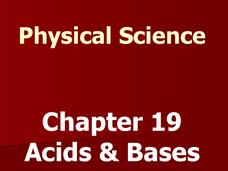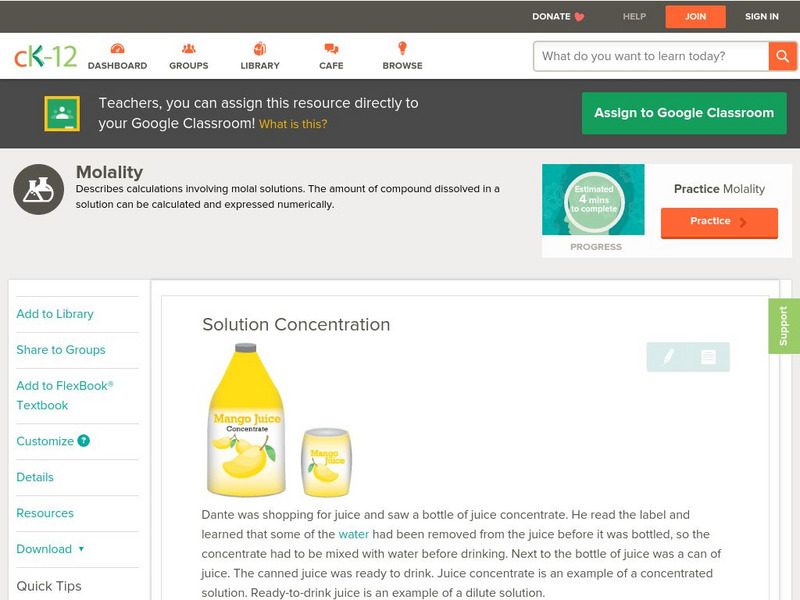Nuffield Foundation
Making Serial Dilutions
There's no need to water down the resource. A tutorial takes learners through the process of creating dilutions for any solution. Specifically, it focuses on serial dilutions with successive factors of 10.
Fuse School
QUIZ: Properties of Water and Dilution
What's the solution to gaining insight into your class' progress? Give this brief quiz a try! Part 10 of a 14-installment series on states of matter tests learners' skills in the areas of dilution and the properties of water, including...
Mr. E. Science
Acids, Bases and Solutions
If you are not part of the solution, then you are part of the precipitate. The presentation covers solutions, suspensions, solubility, dissociation, and acid/base reactions. This is the 19th lesson in a series of 26.
Royal Society of Chemistry
Acids and Bases—Microscale Chemistry
Here's proof that small-scale labs lead to big-time learning. Introduce acid-base interactions to middle school scientists through a microscale chemistry lab. Pupils combine a variety of solutions and use indicators to obtain approximate...
EngageNY
Word Problems Leading to Rational Equations
Show learners how to apply rational equations to the real world. Learners solve problems such as those involving averages and dilution. They write equations to model the situation and then solve them to answer the question — great...
Royal Society of Chemistry
Halide Ion Tests
Young chemists love it when colorful solid products appear in a reaction vessel! Scholars discover the products that form during halide ion tests through a hands-on activity. Users go online and apply chemistry knowledge and reasoning...
Pingry School
Solubility Product of an Ionic Compound
How do scientists determine when a solution is fully saturated? Scholars address the topic as they observe patterns of precipitation in various concentrations of ions. Using a well plate, pipette, and common chemicals, they collect data...
National Institute of Open Schooling
Electrochemistry
In an electrolytic cell, electrical energy is converted into chemical energy, the exact opposite of a battery! Lesson 15 in a series of 36 explores electrochemistry. Participants begin by reading and discussing oxidation/reduction...
CK-12 Foundation
Ck 12: Physical Science: Solution Concentration
[Free Registration/Login may be required to access all resource tools.] Definition of concentration of a solution, the difference between concentrated and dilute solutions and how to calculate the concentration of a solution.










